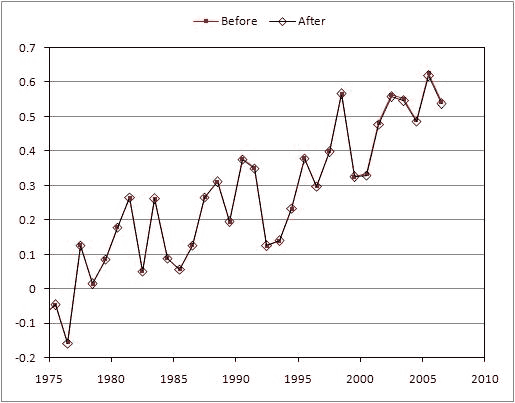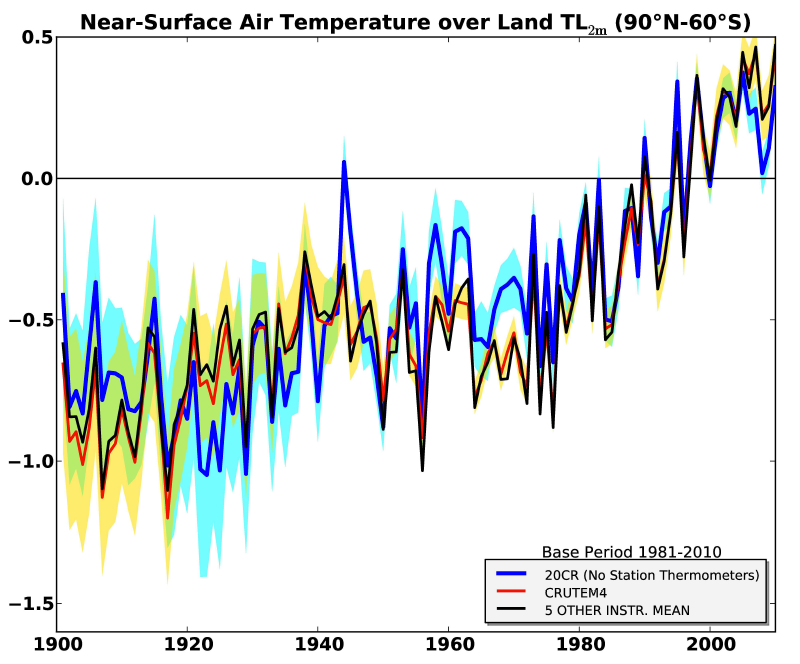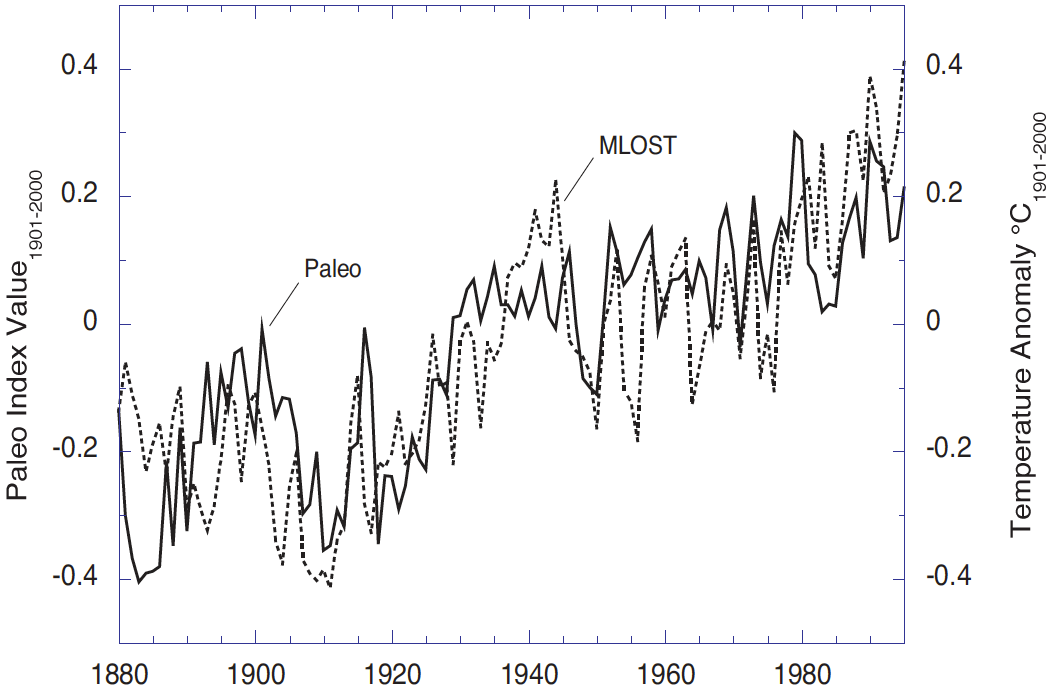 Arguments
Arguments
 Software
Software
 Resources
Comments
Resources
Comments
 The Consensus Project
The Consensus Project
 Translations
Translations
 About
Support
About
Support


Latest Posts
- 2026 SkS Weekly Climate Change & Global Warming News Roundup #07
- Skeptical Science New Research for Week #7 2026
- These key strategies could help Americans get rid of their cars
- Fact brief - Can nearby solar farms reduce property values?
- Sea otters are California’s climate heroes
- 2026 SkS Weekly Climate Change & Global Warming News Roundup #06
- Skeptical Science New Research for Week #6 2026
- The future of NCAR remains highly uncertain
- Fact brief - Can solar projects improve biodiversity?
- How the polar vortex and warm ocean intensified a major US winter storm
- 2026 SkS Weekly Climate Change & Global Warming News Roundup #05
- Help needed to get translations prepared for our website relaunch!
- Skeptical Science New Research for Week #5 2026
- Climate Variability Emerges as Both Risk and Opportunity for the Global Energy Transition
- Fact brief - Are solar projects hurting farmers and rural communities?
- Winter 2025-26 (finally) hits the U.S. with a vengeance
- 2026 SkS Weekly Climate Change & Global Warming News Roundup #04
- Skeptical Science New Research for Week #4 2026
- WMO confirms 2025 was one of warmest years on record
- Fact brief - Do solar panels release more emissions than burning fossil fuels?
- Keep it in the ground?
- 2026 SkS Weekly Climate Change & Global Warming News Roundup #03
- Skeptical Science New Research for Week #3 2026
- Climate Adam - Will 2026 Be The Hottest Year Ever Recorded?
- Fact brief - Does clearing trees for solar panels release more CO2 than the solar panels would prevent?
- Where things stand on climate change in 2026
- 2026 SkS Weekly Climate Change & Global Warming News Roundup #02
- Skeptical Science New Research for Week #2 2026
- UK renewables enjoy record year in 2025 – but gas power still rises
- Six climate stories that inspired us in 2025
Archived Rebuttal
This is the archived Intermediate rebuttal to the climate myth "Temp record is unreliable". Click here to view the latest rebuttal.
What the science says...
|
Numerous studies into the effect of urban heat island effect and microsite influences find they have negligible effect on long-term trends, particularly when averaged over large regions. |
The goal of improving temperature data is something we can all agree on and on this point, the efforts of Anthony Watts and Steve McIntyre are laudable. However, their presupposition that improving temperature records will remove or significantly lower the global warming trend is erroneous.
Adjusting for urban heat island effect
When compiling temperature records, NASA's GISS goes to great pains to remove any possible influence from urban heat island effect. They compare urban long-term trends to nearby rural trends. They then adjust the urban trend so it matches the rural trend. The process is described in detail on the NASA website (Hansen 2001).
They found in most cases, urban warming was small and fell within uncertainty ranges. Surprisingly, 42% of city trends are cooler relative to their country surroundings as weather stations are often sited in cool islands (a park within the city). The point is they're aware of UHI and rigorously adjust for it when analyzing temperature records. More on urban heat island...
Climate Audit and NASA's "Y2K" glitch
Steve McIntyre's discovery of a glitch in the GISS temperature data is an impressive achievement. Make no mistake, it's an embarrassing error on the part of NASA. But what is the significance?
Figure 1 compares the global temperature trend from before and after adjustments. Before the error was discovered, the trend was 0.185°C/decade. After corrections were made, the trend was still 0.185°C/decade. The change to the global mean was less than one thousandth of a degree. More on NASA's Y2K glitch...

Figure 1: Global temperature anomaly before (red squares) and after (black diamonds) NASA's "Y2K" corrections (Open Mind).
Other lines of evidence for rising temperatures
The surface temperature trends are also confirmed from multiple, independent sources:
- Surface temperature analysis by NASA GISS finds strong agreement with two independent analyses by CRU's Global Temperature Record and NCDC.
- Weather balloon measurements have found from 1975 through 2005, the global mean, near-surface air temperature warmed by approximately 0.23°C/decade.
- Satellite measurements of lower atmosphere temperatures show temperature rises between 0.16°C and 0.24°C/decade since 1982.
- Ice core reconstructions found the 20th century to be the warmest of the past five centuries, confirming the results of earlier proxy reconstructions.
- Sea surface temperatures, borehole reconstructions and ocean temperatures all show long-term warming trends.
Reanalysis data sets also show the same warming trend. A ‘reanalysis’ is a climate or weather model simulation of the past that incorporates data from historical observations. Reanalysis comparisons by Vose et al. (2012) and Compo et al. (2013) find nearly identical global surface warming trends as in the instrumental record (Figure 2).
Figure 2: Temporal comparison of near-global land (90°N–60°S) 2 meter air temperature anomalies (TL2m) between 20CR and station-temperature based estimates. Red curve: global TL2m anomaly series from CRUTEM4, black curve: the average of five additional station-temperature datasets, and blue curve: the 20CR. 95% uncertainty ranges are shown for CRUTEM4 (yellow fill) and 20CR (blue fill) and their overlap (green fill). From Compo et al. (2013)
A paper by Anderson et al. (2012) also created a new global surface temperature record reconstruction using 173 records with some type of physical or biological link to global surface temperatures (corals, ice cores, speleothems, lake and ocean sediments, and historical documents). The study compared their reconstruction to the instrumental temperature record and found a strong correlation between the two (0.76; Figure 3).
Figure 3: Natural temperature proxy reconstruction (solid) and the merged land-ocean surface temperature anomalies (MLOST, dashed) relative to 1901-2000. The range of the paleo trends index values is coincidentally nearly the same as the GST although the quantities are different (index values versus temperature anomalies °C).
Intermediate rebuttal written by dana1981
Update July 2015:
Here is a related lecture-video from Denial101x - Making Sense of Climate Science Denial
Additional video from the MOOC
Kevin Cowtan: Heat in the city.
Updated on 2016-10-12 by pattimer.
THE ESCALATOR

(free to republish)


























































